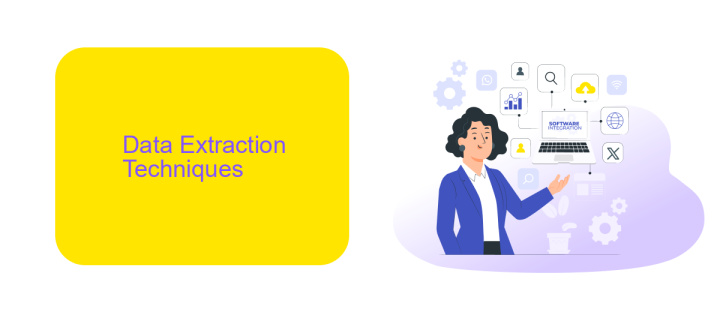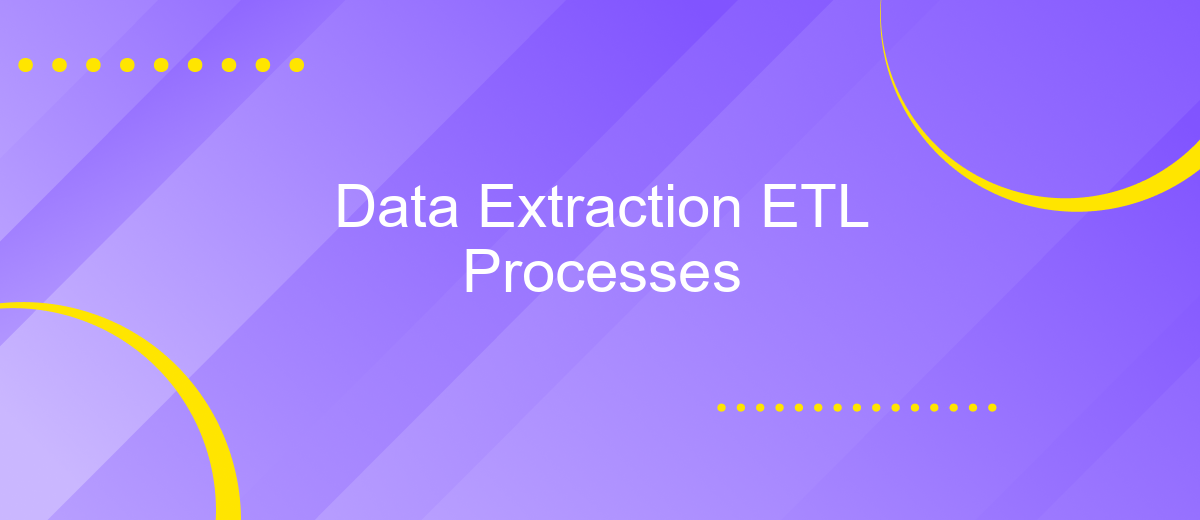Data Extraction ETL Processes
Data Extraction in ETL (Extract, Transform, Load) processes is a critical phase in data integration and management. This step involves retrieving data from various sources, such as databases, APIs, and flat files, to prepare it for subsequent transformation and loading into a data warehouse. Effective data extraction ensures the accuracy, completeness, and reliability of the data used for analysis and decision-making.
Introduction
Data extraction is a crucial component of ETL (Extract, Transform, Load) processes, enabling organizations to gather valuable insights from diverse data sources. By efficiently extracting data, businesses can streamline operations, enhance decision-making, and maintain a competitive edge in the market. The process involves various techniques and tools to ensure data accuracy and reliability.
- Data extraction from structured and unstructured sources
- Transforming data to meet business requirements
- Loading data into target systems for analysis
One of the key challenges in data extraction is integrating multiple data sources seamlessly. Services like ApiX-Drive offer robust solutions for automating integrations and simplifying the ETL process. With ApiX-Drive, businesses can connect various applications and databases, reducing manual effort and minimizing errors. This not only enhances efficiency but also ensures that data is readily available for strategic decision-making.
Data Extraction Techniques

Data extraction techniques are crucial for efficient ETL processes, ensuring accurate and timely data transfer from various sources. One common method is the use of SQL queries to extract data directly from databases. This technique is highly effective for structured data but requires in-depth knowledge of SQL and database schemas. Another widely used approach involves web scraping, which extracts data from websites. This method is beneficial for gathering unstructured data from web pages but may require handling anti-scraping mechanisms and frequent changes in website structures.
For businesses looking to streamline their data extraction without extensive coding, integration platforms like ApiX-Drive offer a valuable solution. ApiX-Drive enables seamless data extraction from a multitude of sources, including CRM systems, social media platforms, and e-commerce sites. By automating the integration process, ApiX-Drive minimizes the need for manual intervention, reducing errors and saving time. This service supports real-time data synchronization, ensuring that the extracted data is always up-to-date and readily available for further processing in the ETL pipeline.
ETL Process Overview

ETL (Extract, Transform, Load) is a vital process in data management and integration, enabling organizations to gather data from multiple sources, transform it into a suitable format, and load it into a target system for analysis and reporting. This process ensures data consistency, quality, and accessibility across various platforms and applications.
- Extract: This initial phase involves retrieving data from diverse sources such as databases, APIs, and flat files. Tools like ApiX-Drive facilitate seamless data extraction by connecting to various services and automating the data retrieval process.
- Transform: During this stage, the extracted data is cleansed, formatted, and transformed to meet the requirements of the target system. This may include data normalization, deduplication, and enrichment.
- Load: The final phase involves loading the transformed data into a target database, data warehouse, or data lake for further analysis and reporting. Efficient loading ensures that data is readily available for business intelligence and decision-making.
ETL processes are essential for maintaining data integrity and enabling comprehensive data analysis. By leveraging tools like ApiX-Drive, organizations can streamline their ETL workflows, ensuring timely and accurate data integration across various platforms.
Challenges and Best Practices

Data extraction in ETL processes presents several challenges, such as data inconsistency, handling large volumes of data, and ensuring data quality. These issues can lead to inaccurate analysis and poor decision-making if not addressed properly.
Another significant challenge is integrating data from multiple sources. Different systems often have varying data formats, making it difficult to consolidate information seamlessly. Tools like ApiX-Drive can simplify this process by automating data integration, reducing manual effort, and minimizing errors.
- Ensure data quality by implementing validation checks and cleansing routines.
- Use scalable solutions to handle large data volumes efficiently.
- Automate data integration with tools like ApiX-Drive to streamline processes.
- Maintain comprehensive documentation for all ETL processes.
Adopting these best practices can significantly improve the efficiency and accuracy of your ETL processes. By leveraging automation tools and focusing on data quality, organizations can ensure reliable data extraction and integration, ultimately supporting better business decisions.
- Automate the work of an online store or landing
- Empower through integration
- Don't spend money on programmers and integrators
- Save time by automating routine tasks
Conclusion
In conclusion, the process of data extraction in ETL (Extract, Transform, Load) is a critical component for any data-driven organization. Effective data extraction ensures that relevant and accurate data is collected from various sources, setting the foundation for subsequent transformation and loading stages. By leveraging advanced tools and methodologies, organizations can streamline their data workflows, enhance data quality, and ultimately make more informed decisions.
Moreover, integrating services such as ApiX-Drive can significantly simplify the data extraction process. ApiX-Drive offers seamless integration capabilities, allowing businesses to connect multiple data sources effortlessly. This not only reduces the complexity of manual configurations but also ensures that data is consistently up-to-date and readily available for analysis. As a result, companies can focus more on deriving insights and less on the technicalities of data management, thereby driving greater operational efficiency and strategic value.
FAQ
What is ETL in the context of data extraction?
What are the main steps involved in an ETL process?
Why is data transformation important in the ETL process?
How can ETL processes be automated?
What are some common challenges in ETL processes?
Time is the most valuable resource in today's business realities. By eliminating the routine from work processes, you will get more opportunities to implement the most daring plans and ideas. Choose – you can continue to waste time, money and nerves on inefficient solutions, or you can use ApiX-Drive, automating work processes and achieving results with minimal investment of money, effort and human resources.


